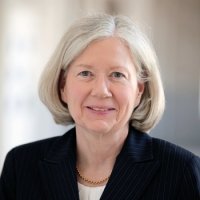Fair Taxation in the Middle East and North Africa
Two experts on fiscal policy discussed a recently published International Monetary Fund (IMF) report that examined the current state of tax systems throughout the Middle East and North Africa (MENA) and how taxation reforms could lead to greater economic fairness in the region.
On September 25, 2015, the Middle East Program and the Africa Program at the Wilson Center and the International Monetary Fund hosted the event “Fair Taxation in the Middle East and North Africa,” with Michael Keen, Deputy Director of the Fiscal Affairs Department at the International Monetary Fund. Meg Lundsager, Public Policy Fellow at the Woodrow Wilson Center, was a discussant to the event. Kendra Heideman, Program Associate of the Middle East Program at the Woodrow Wilson Center, moderated the event.
Keen began by explaining the report’s broader political-economic context. Kennan stated that the IMF—and specifically the authors of the report—are very conscious of the unfulfilled aspirations of the Arab Spring. Currently, much of the MENA region faces slow growth, political uncertainty, and insufficient structural reforms. Keen said that effective fiscal policy creates a strong linkage between the citizen and the state. He suggested a tax system is considered “fair” when it adheres to the principle of horizontal equity (people in similar financial standing pay similar taxes) and maintains a non-abusive and non-harassing collection system, and when citizens gain a sense of value from government services.
Keen then discussed the two types of tax systems found in the MENA region: those based on hydro-carbon income and those structured without hydrocarbon income. Both of these systems lack fairness, according to Keen. The diverse, well-established, non-hydrocarbon-based tax systems suffer from low yield because they do not effectively tax their base. This is because the rates for higher personal income tax (PIT) brackets are too low and non-wage earnings like capital gains are not taxed. Keen also stated that multiple tax rates and extensive tax expenditures hinder the success of corporate income taxes (CIT) and create opportunities for tax avoidance. He noted these fiscal policies are associated with a high perception of corruption. In hydrocarbon-based tax systems, personal income tax is rare, non-resource tax mainly comes from trade and corporate tax of foreign companies, and value added taxes do not exist in many countries, including the Gulf Cooperation Council and Libya.
Keen highlighted several recommendations for fairer taxation from the new IMF report. He suggested non-hydrocarbon-based tax systems throughout the MENA region develop a simpler and more progressive personal income tax that contains only 3-4 income brackets and accesses non-wage earnings like capital gains. He suggested these systems widen taxable bases by eliminating corporate income tax exemptions and by introducing or reforming property taxes. Keen also stressed the need for administrative reform that strengthens capacity and compliance within tax systems. Regarding hydrocarbon-based systems, Keen suggested these states diversify or replace their declining resource revenue. He believes this can be achieved by introducing value added tax, developing a low-rate corporate income tax, establishing property taxes, and introducing personal income taxes.
Lundsager acknowledged the administrative reforms suggested by the IMF could create fairer taxation under the two systems and discussed the feasibility of these reforms being implemented. She commented that “fairness” is a subjective term and said the most important question is how the IMF can assist countries in developing national consensuses on what a fair tax system may look like. She noted there is real concern that influential members of states in the MENA region will be resistant to taxation reforms. Lundsager suggested the IMF work with governments to develop a strategy based on the state’s particular priorities because this approach could foster more support for the recommended tax reforms.
By: Nathan Odendahl, Middle East Program
Speakers

Former U.S. Executive Director and Alternate Executive Director, International Monetary Fund

Hosted By

Middle East Program
The Wilson Center’s Middle East Program serves as a crucial resource for the policymaking community and beyond, providing analyses and research that helps inform US foreign policymaking, stimulates public debate, and expands knowledge about issues in the wider Middle East and North Africa (MENA) region. Read more
